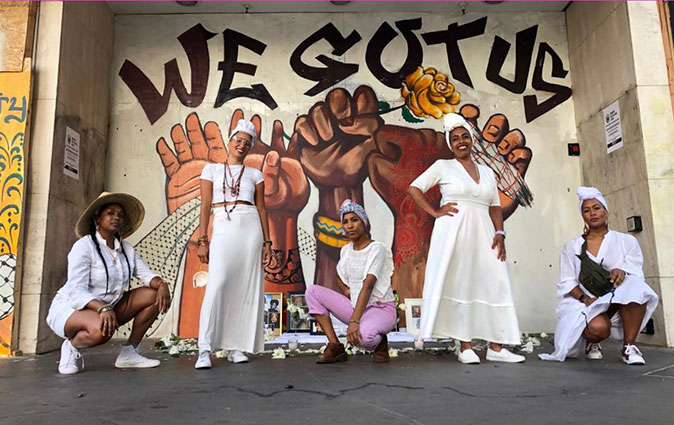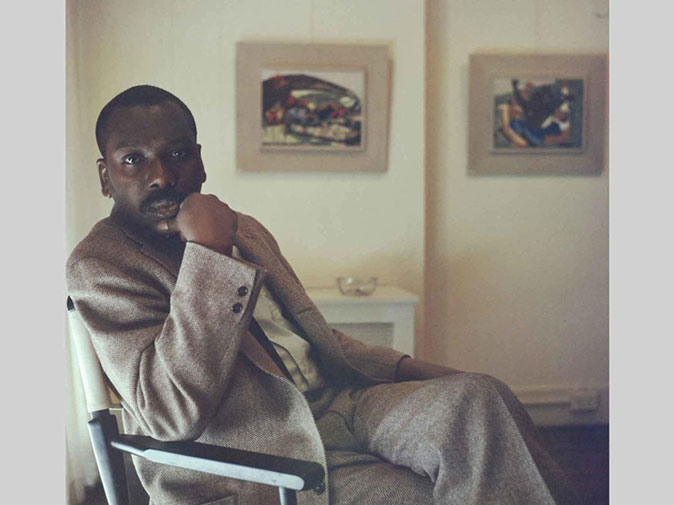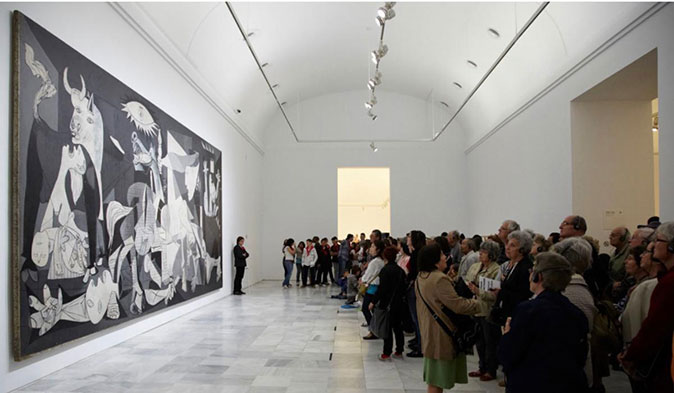Art Lift III: Protest Art
Whether rendered overnight in an organic rush or methodically over time, by iconic artists or people who do not even identify as artists, protest art always seeks to bear witness, inform and provoke public discourse.
Here are a few iconic examples, starting with our present moment and going back to Picasso.

Cece Carpio and Trust Your Struggle Artist Collective, Mural, Oakland CA, 2020
In the aftermath of the murder of George Floyd, Carpio and her artist collective were among the hundreds of artists who took to the streets in the US and across the world to create murals protesting police brutality and supporting Black Lives Matters. On her Instagram page featuring the mural, Carpio quotes scholar Cornell West: “Justice is what love looks like in public”.

Ai Wei Wei, Dropping a Han Dynasty Urn, 1995
In 1995, the pro-democracy Chinese artist Ai Weiwei had photos taken to record him dropping a 2000 year old ceremonial urn. Like current cell phone videos of police brutality which take on a life of their own, it was the photos of Ai’s act that live on to convey and endlessly reenact a pivotal moment that fosters political and social discourse. By shattering the cultural and symbolic value others had invested in this revered object, Ai provoked outrage which he countered with the repressive Mao regimes own words: the only way of building a new world is by destroying the old one.

Judy Chicago, The Dinner Party, 1974-1979
Seeking to amend the history of world civilization by honoring 999 woman (there ended up being only 998 because Kresilas the male Greek sculptor got included by mistake!) Chicago arguably created the most enduring feminist work of art of all time. It certainly is one of the largest, a triangular shaped table running 48 feet along each side, with table settings replete with “butterfly vagina” imagery that continues to provoke and inspire at the Brooklyn Museum, NY, where the piece is on permanent display.

Jacob Lawrence, Struggle: From the History of the American People,1954-56
Before Judy Chicago sought to rewrite world history, Jacob Lawrence sought to rewrite American history, making room for women, black people, Native Americans and a plethora of unsung heroes central to the founding of America. Thirty small egg tempura paintings retell the founding of American democracy from the Boston Massacre of 1770 to the aftermath of the War of 1812 from the point of view of the most celebrated black artist of his day. Painted at the dawn of the civil rights era, today Lawrence is simply recognized as one of America’s greatest artists, period.

Picasso, Guernica, 1937
Possibly Picasso’s most famous painting, Guernica depicts the Nazi bombing of the small defenseless Basque town during the Spanish Civil War. Painted in monochrome tones evocative of the newspaper from which the artist first learned of the atrocity, Guernica spread it’s anti-war message by touring for decades across the US, Brazil and western Europe. It was eventually returned to Spain in 1981, where it remained so polarizing it needed to be displayed under bullet proof glass at one time. It endures as one of the most indelible anti-war images of all time.
